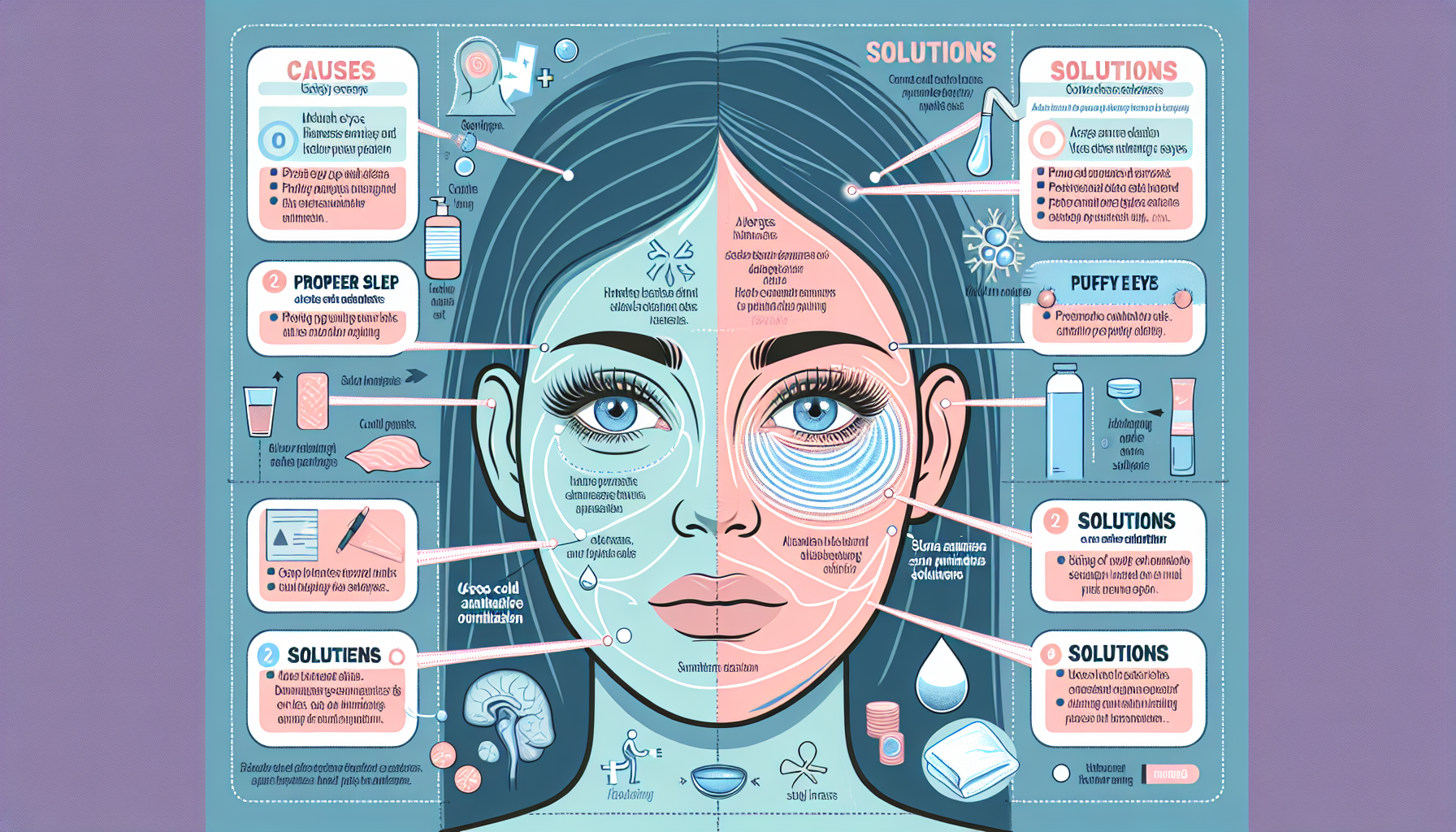Understanding Puffy Eyes: Unpacking the Causes and Solutions
Have you ever woken up to a pair of puffy eyes that made you feel like you’d been crying all night? Or perhaps you’ve experienced that uncomfortable feeling of swelling after a long day? If so, you're not alone. Our eyes are sensitive and can swell for a multitude of reasons. While some puffiness can be merely cosmetic, persistent swelling may signal underlying health issues. Let's take a closer look at the various causes of puffy eyes and explore ways to reduce this common concern.
1. Lack of Sleep
Imagine this: you just closed your eyes for what felt like ages, yet you wake up with bags under your eyes. What gives? According to Dr. Anar Mikailov, a dermatologist and co-founder of Skintensive, lack of sleep can trigger the accumulation of fluid in the body due to hormonal changes. "Sleep is crucial for your body to flush out toxins and waste products," he explains. When you're sleep-deprived, your body isn't able to do its job properly, leading to that dreaded puffiness around the eyes.
Tip: Aim for 7-9 hours of quality sleep each night.
2. Sleep Position
Did you know that the way you sleep can also affect your appearance? If you’re someone who often sleeps face down, you're more likely to wake up with puffy eyes. Dr. Mikailov points out that sleeping with your face pressed against a pillow can cause fluids to accumulate around your eyes. Rather than sleeping flat, consider using an extra pillow to elevate your head. This simple adjustment helps gravity do its job, reducing fluid buildup.
Tip: Try to sleep on your back or use an extra pillow under your head.
3. Hormonal Changes
For people who menstruate, hormonal fluctuations are frequent culprits for puffy eyes, especially during the premenstrual phase. Dr. Mikailov notes, "Higher progesterone levels can cause the body to retain fluid, often visible in the face."
Tip: If you notice puffiness tied to your cycle, try reducing salty foods that can exacerbate water retention.
4. Allergies
Allergies can lead to a host of annoying symptoms, including puffy eyes. Seasonal allergies, in particular, can trigger an increase in histamine levels, causing irritation, inflammation, and swelling.
Tip: If you suspect allergies are the cause, consider over-the-counter antihistamines or consult with a healthcare provider for a tailored treatment plan.
5. Dehydration
Interestingly, being dehydrated can also lead to puffiness. "When your body senses it’s low on water, it holds onto whatever fluid it has, leading to puffiness," explains Dr. Mikailov. It's a bit of a paradox—if you’re feeling puffy, you might actually need to hydrate more.
Tip: Aim to drink at least 8 glasses of water a day, and consider adding hydration-boosting foods like cucumbers and watermelons to your diet.
6. Crying
We've all experienced that post-crying puffiness. Dr. Mikailov states, "Crying causes the tissues around the eyes to swell due to the influx of tears." Rubbing your eyes to wipe away tears can exacerbate the situation, leading to further inflammation and swelling.
Tip: If you've been crying, try applying a cool compress to soothe the swelling.
Conclusion
Puffy eyes can result from various factors, from lack of sleep to allergies. While some causes are straightforward to address, others may require lifestyle or dietary changes. If you find yourself frequently dealing with this issue, it might be worth consulting with a healthcare provider to rule out any underlying health conditions. By taking steps to improve sleep, hydration, and possibly posture, you can achieve a fresher, brighter look each morning—because who doesn't want to wake up feeling and looking their best?
